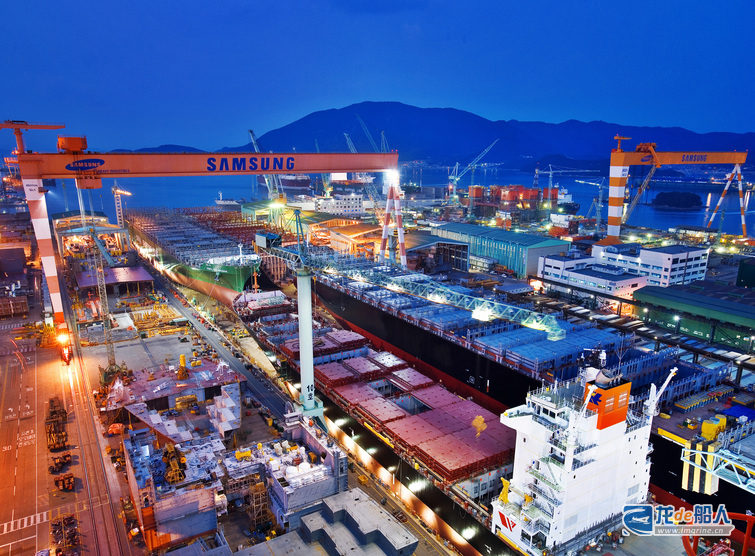South Korean media reports indicate that Samsung Heavy Industries plans to build a new shipyard in Vietnam, a move interpreted by the South Korean shipbuilding industry as an effort to expand its small and medium-sized vessel business, while retaining the construction of larger vessels at its Geoje Shipyard. Samsung Heavy Industries has previously cited Vietnam’s low labor costs as a strategic goal to reduce its reliance on Chinese shipyards.

According to multiple sources, Samsung Heavy Industries is in discussions about building a new shipyard in Vietnam. An industry insider familiar with Samsung Heavy Industries’ internal affairs said, “Samsung Heavy Industries is evaluating the possibility of building a new shipyard in Vietnam for building small and medium-sized vessels. Currently, Samsung Heavy Industries believes that building a new shipyard has more advantages in terms of improving construction efficiency than acquiring an existing local shipyard.”
Since 2015, Samsung Heavy Industries has been trapped in an eight-year slump of poor performance. Persistent losses have forced the company to maintain a conservative investment strategy. The recently disclosed plan to build a new shipyard aimed at expanding its small and medium-sized vessel business clearly represents a difficult decision.
Throughout its development, Samsung Heavy Industries has experienced multiple instances of failed overseas expansion. In 2006, the company established a new shipyard in Brazil’s Suape region. However, due to operational challenges and other factors, it quietly withdrew from the local market after just six years.
Following this, Samsung Heavy Industries responded to the industry downturn through intensive restructuring, scaling back its domestic and international operations. Currently, its sole overseas shipbuilding base is Samsung Heavy Industries (Rongcheng) Co., Ltd. in Rongcheng, China, which primarily focuses on constructing ship blocks.
Despite its previous overseas expansion failing to yield the expected results, Samsung Heavy Industries continues to target Vietnam as a market, aiming to establish an overseas base. Key factors driving Samsung Heavy Industries’ choice of Vietnam include low labor costs, a young and abundant workforce, and a mild climate.
The South Korean industry believes that Samsung Heavy Industries’ new shipyard construction plan in Vietnam is closely linked to the intensifying competition in the large vessel market.
After major South Korean shipyards withdrew from the low-value-added bulk carrier market in earlier years, they shifted their focus to competing for orders in gas carriers such as liquefied natural gas (LNG) tankers, container ships, and oil tankers. However, as China’s shipbuilding industry rapidly accumulated construction experience through various advantages, the technological gap between Chinese and South Korean shipbuilding has gradually narrowed.
Currently, orders for container ships and tankers—considered core businesses by South Korean shipyards—have also begun shifting toward Chinese shipyards. Major South Korean shipbuilders are collectively grappling with a strong sense of crisis: “If core orders like LNG carriers continue to decline, their medium-to-long-term order backlogs will face serious difficulties.” Clarkson data reveals that from January to July this year, global LNG carrier orders totaled only 9 vessels, compared to 63 during the same period last year—a significant year-on-year drop.
South Korean industry insiders emphasize: “Should Samsung Heavy Industries establish a shipyard in Vietnam, it would enhance price competitiveness and potentially secure orders for small-to-medium bulk carriers and tankers that were previously out of reach. Although Vietnam’s shipbuilding expansion plans were delayed for years due to financial constraints, the industry has now achieved profitability and is expected to accelerate its progress.”
However, regarding the construction of a new shipyard in Vietnam, a representative from Samsung Heavy Industries stated that “there has been no concrete progress at present”, but at the same time stated that “the possibility of cooperation with overseas shipyards always exists”.


